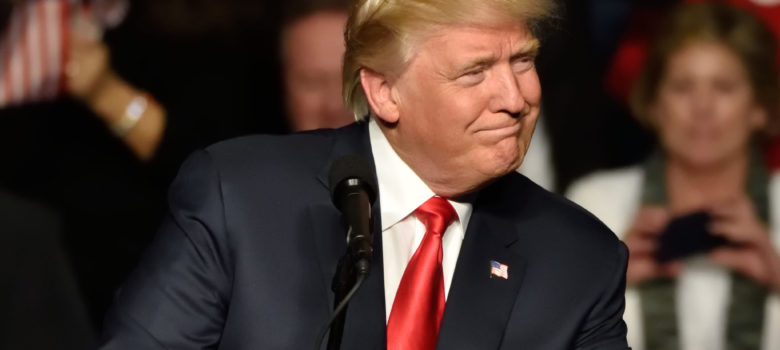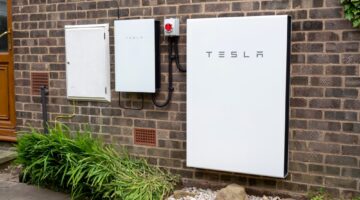
Last night, in one of his most controversial moves yet, President Trump announced his intention to pull the US out of the Paris Agreement. What will it mean for the US and the rest of the world? We spoke to Dr. Frederik Dahlmann, Assistant Professor of Global Energy at Warwick Business School, to get his expert opinion!
With big business leaders denouncing his decision, how wrong is Donald Trump that limiting climate change is bad for business?
The US President’s assertion that limiting climate change is generally bad for business is evidently wrong given the very significant growth in renewable energy investment and jobs in recent years, particularly the US, where there are already more than twice as many people employed in the renewable sector compared to the coal sector. Of course, all policy decisions have an impact on business in some way. So, in that sense it is vitally important that all climate change-related actions take the negative consequences (such as for the coal sector) into account and provide credible support and opportunities for economic rehabilitation.
At the same time, many of the US’ biggest and most innovative companies have repeatedly countered President Trump’s argument that climate policies are strictly bad for business. Their engagement with climate change has led to significant (green) product innovations and process improvements. These have saved businesses countless dollars in energy cost while making them internationally more competitive, improving their reputations and attracting a workforce that’s increasingly demanding such actions from their employers. Donald’s Trump focus is extremely narrow in its overriding concern for one particular sector, while ignoring the large and varied positive economic impacts already being experienced by many other firms. This short-term focus is even more worrying given repeated assessments of the economic long-term implications favouring short-term costs from climate change mitigation compared to the significant financial burdens arising from adaptation once physical climate change begins to impact our economies.
What are the biggest ways in which the US evading environmental regulation could impact the planet?
First, the President’s decision to withdraw from the Paris Accord will legally take at least three years to materialise. This will mainly damage the country’s geo-political standing more than anything else. In the meantime, the President is likely to continue his efforts to reduce environmental regulatory interventions within the US – designed by his predecessor – to overcome congressional inertia. This would largely affect the fossil-fuelled power sector where utilities would benefit from more relaxed power plant operation criteria. The question as to whether these companies will actually reverse some of their previous decisions then depends on economic trends. Here, the increasing availability and low prices of natural gas and the steadily falling costs for renewable energy are far more likely to shape their decision making. What this points towards is that while the US might formally and symbolically lift its foot of the climate policy pedal, with possibly minor negative consequences for the country’s carbon emissions in coming years, in reality factors beyond the US’ membership in the Paris Accord are more likely to ensure that these consequences are less severe than feared.
What has been achieved since the Paris Agreement was signed? How wrong is Trump that ‘’the reality is that withdrawing is in America’s economic interest and won’t matter much to the climate.’
Reaching an international agreement on climate change in Paris was the outcome of many years of cumulative efforts, often fraught with major setbacks, to develop a deal between all the nations of this planet – regardless of whether they were large or small, developed or developing. Despite the eventual elation about agreement in Paris, the Accord also faced criticism and all parties are aware of the significant challenges still ahead in implementing it. Still, more than half the world’s nations have already formally ratified the agreement and therefore signalled their commitment going forward. Since then, some progress has been made but many obstacles and uncertainties remain.
As I suggested above, the reality is that apart from certain sectors and vested interests, overall withdrawal is in neither America’s economic nor geopolitical interest. There is a chance that the withdrawal might not matter much for the climate because other American actors (companies, states and cities) are pushing on regardless. But if that’s the case, then there is no need for the US to withdraw. Instead, President Trumps relinquishes a crucial leadership opportunity for the United States.
Is there any truth in Trump’s claim that ‘[the] agreement is less about the climate and more about other countries gaining a financial advantage over the United States’?
Inevitably, countries sign up to international agreements because they believe it is in their interest. The assertion that they do so to gain financial advantage over the US is implausible. Countries have signed up to the Paris Agreement because they recognise that internationally concerted efforts are in everyone’s best interests in the long term. Payments to support developing countries with their transition recognise developed countries’ historical responsibilities from having already polluted the atmosphere to very substantial levels. In that sense, such payments, which Trump interprets as financial advantages, simply reflect the principles of fairness and common but differentiated responsibilities towards addressing climate change.
How can we continue to encourage world leaders that tackling climate change is in their best interests?
In my opinion, this is not so much a question of acting in leaders’ best interests, but ultimately in citizens’ and their descendants. As such, voters need to continue demanding from their leaders to do more to understand the challenges of climate change and to develop smart, economically-supportive policies that decouple economic growth from carbon emissions while creating new and good quality jobs in sectors with a long-term future. Leaders then have a responsibility to ensure that these policies do not collide at the world stage where the effects of trade and globalisation can create social, economic and environmental disparities. The Paris Accord was designed to create a foundation for leaders to address such issues; President Trump appears ignorant of the world in the 21st century and the role the agreement plays as part of this process.
A quick one, off-topic…. What do you think of the environmental/energy policies contained in the big UK parties’ manifestos?
I would only comment that, apart from Labour’s proposed renationalisation of parts of the energy infrastructure and the Conservatives’ idea to cap energy prices, environmental issues have largely been pushed into the background in this election campaign. Yesterday’s announcement by President Trump has certainly revived part of the broader debate and I would hope that this will find its way back into the discussion. Ultimately, environmental issues have broad social, economic and geopolitical consequences and should therefore be raised more strongly.
Think we missed something? Do you have a different opinion?
Comment below to get your voice heard…












No Comments yet! Be the first one.